- Home
- Roger Taylor
Whistler [A sequel to The Chronicles of Hawklan] Page 21
Whistler [A sequel to The Chronicles of Hawklan] Read online
Page 21
It could be morbid curiosity, of course. Murder held a fascination for the oddest people, and this crime was still being gossiped about extensively, not least because no culprit had yet been found, nor even a suspect. But it did not seem conceivable that Cassraw would have succumbed to such prurience. Besides, wandering about round there at night took no small amount of courage for someone who was not familiar with the area and its denizens.
There were a few other possibilities, each of them improbable: a woman; a secret meeting in connection with church politics; even that Cassraw was the murderer. Skynner let them all go. It seemed that his judgement about Cassraw's honesty might have been wrong. Perhaps he had told the truth after all.
But Skynner's instinct cried out against this. His judgement was sound enough. A lot of strange things had happened lately—all since that damned black cloud had appeared over the town. Poor old Jarry, thinking that the devil had come again and rambling about it still, by all accounts. People claiming that voices had told them to do things. Others saying they were being followed by strange shadowy figures. It seemed that every eccentric in Troidmallos had become more so. And Cassraw's escapade had to be put with these until he found out otherwise.
A crier sounded the time, startling him a little. On an impulse, he decided to pursue the matter immediately.
* * * *
As he strode through more familiar streets, Cassraw did as he said he would: he thought about what had happened. Or rather he watched as the events of the last hour tumbled through his head over and over. At first the dominant feature was the most recent, and most physical: his encounter with Skynner. This had shaken him badly. He had felt an aspect of the man's power which he could never have known under normal circumstances. For a moment, he had been a criminal, and as such he had been seized, quite literally, by the law. His leg was still sore where Skynner had kicked him, and his jaw was aching a little where it had been gripped. And he had no doubt at all that he would have been brutally beaten if, in panic, he had tried to flee. Yet, oddly, the experience had been exhilarating. The intensity of the focus of an unyielding intention had stirred him in some way. It had the purity of simplicity. The simplicity of the mailed fist. Thus we learn. A new element entered into deepening resolutions. He would become His mailed fist. Iron, implacable to those who opposed His will. And so, too, would be his men; his iron fist writ large.
His men. He relished the thought. His contact with Skynner was swept aside by visions of the future of his Knights of Ishryth, transformed—no, revealed in their true splendour—to bring order to His followers and terror to His enemies. It was a heady vision, in which the steady rhythm of his feet on the roadway became the marching feet of thousands.
Yet amid this rapture came memories of the other events that had occurred in the alley. The terrifying, primitive emotions that had possessed him as he had stumbled to the ground and into the lanternless darkness; the burning desires of the flesh and the fearful, murderous bloodlust, hideously intermingled; that strange figure which had peered into his eyes as if searching out his very soul. And then rejected him! Cassraw clenched his fists and his jaw tautened.
Rejected him—the Chosen One—as if he had been some unwanted cur. It was intolerable. Rage filled him.
But other questions still burned through his anger. Who had he been? For a brief moment, Cassraw shook violently as it occurred to him that the figure might have been the murderer, returning to the scene of his atrocity. Yet, that could not have been. There was no one else in the alley—Skynner would have seen him for sure. Besides, their mysterious meeting had not happened in the alley—they had been somewhere else. An inner certainty of this allowed Cassraw no reasoned reservation. But if not the alley, then where? Where could such a land, with its luring shadows, be—other than in one of his strange new dreams? That there could be no answer merely served to heighten the power of the question.
And had the figure been as real as it had seemed, or was it just a figment of his imagination? But why should he create such an illusion? An illusion that had judged him with such withering contempt. His mind twisted with fury again at the memory. Yet if it was not an illusion, what was it?
Then, blindingly: It was a test!
How else could he have been so powerfully drawn to that place? How truly impulsive had his decision been to visit Yanos? And how accidental his meeting with Albor? And how else could his unthinking footsteps have carried him there? Even the alley itself had lured him like a dark beacon. It had been a test, beyond a doubt.
But had he failed or had he passed? Or was judgement still pending?
He gripped the copy of the Santyth in his pocket, hoping for guidance. He tried to recall the figure that had appeared to him and the words that it had spoken. But no face came to him, and only fleeting hints of a lean angular form, shielding its eyes as it peered into him, and then prancing grotesquely away. Some of the words it had spoken he remembered, though they meant nothing to him: abomination; demon guide; night eyes. But the contempt he recalled in its entirety, and as he recalled it so his fury returned and was fed.
By now he had stopped walking and was standing rigid with tension in the full glare of one of the street lights. It took him a wilful effort to release his clenched fists and the knuckles ached as he did so, as did his jaw and almost every part of him as he forced muscles and sinews into movement again. Then, aware of his visibility, he brought his hands together and bowed his head as if he had suddenly been inspired to pray, looking about him surreptitiously as he did so to see if anyone had been witness to this silent outburst.
Satisfied that his strange behaviour had gone unnoticed, he set off again. Had that perhaps been the purpose of the test—to give him a true measure of his righteous anger when assailed by doubters and scoffers? If so, then it had been successful. He would know how to deal with such in the future.
The conclusion brought him back to his plans for Yanos and the Knights of Ishryth. A sword must be forged that would sweep all before it. A sword that could glisten untarnished through an endless bloodletting, should His will be defied. Once again, the sound of his footsteps became the feet of thousands, and he was oblivious to all things until he found himself passing through the tall iron gates of the Haven Meeting House. His soaring dreams faded sourly, however, as he approached the darkened doorway to his private quarters. A lamp should have been burning there. He must rebuke the servants tomorrow. The Meeting House should be a constant source of illumination in every sense. It should shine through the night of Troidmallos as it should shine through the spiritual night of Canol Madreth and the whole of Gyronlandt and beyond.
He paused as the thought took wings. His eyes were drawn upwards, towards the invisible bulk of the Ervrin Mallos. There was the place for a true beacon, one that indeed would light the whole land and act as focus for the many powers that he could sense hovering about him, awaiting that single tiny grain that would coalesce them into a mighty whole.
There was a stirring within him. A listening? A prompting?
Then, as if clouds were slowly being blown away to expose it, there came to him a vision of a great place of worship rising out of the jagged peak of the mountain; a many-towered temple, glittering arrow-sharp and sunlit against the grim black clouds that presaged the coming of His chariots.
Cassraw stood silent and awe-stricken before the ramping splendour of this sight, then sank to his knees, his hands clasped. ‘Thus let it be, Lord. Thus shall it be. Through such shall the One True Light be drawn down amongst us again, to spread across the worlds.’ His voice was hoarse with emotion.
He knew that in some way he did not understand, he had been tested and found whole, and that this vision had been granted him to show him the way forward. With this single binding thread, the tangled weave of careful plans, vague hopes and fanciful speculations that had been shifting and changing within him since his encounter on the mountain, came together to form a tapestry, in whose pattern, at once subtle and ope
n, delicate and iron-shod, the entire future could be read.
He knew, too, that though this present intensity must surely pass, the vision would remain with him for ever and that, as with the Santyth, he had but to look into it to see what he must do. Indeed, he had but to be aware of its existence to know what to do.
He had no conception of how long he remained kneeling on the stone pathway, but slowly he became aware of normality re-forming about him. And, too, there was a presence. He looked about him as he stood up. A figure was standing nearby. Unlike the figures he had met in the alley, this one he recognized, even in the dim light that was reaching him from the street. She was standing as she had been when he had seen her earlier that day, her head slightly bowed.
'Dowinne,’ he said quietly.
'Enryc,’ his wife replied, almost formally. ‘I had no idea how late it was.’ She hesitated and inclined her head a little as if listening to something. When she spoke again her voice was low and full of messages that of late had become very familiar to him. ‘I was beginning to be concerned about you. The servants are long asleep.'
Cassraw felt his chest tighten. He reached out. His wife's hand closed about his purposefully.
'This has been a rare day, wife,’ he said. ‘Such things have happened as I can scarcely believe. Such visions.'
'I feel the change in you,’ Dowinne replied, almost whispering now, leading him forward. ‘Words are not necessary.'
'But I must tell you,’ Cassraw insisted as they stepped through the doorway into their private quarters.
Dowinne closed the door behind them. ‘Yes,’ she said. Her arms folded irresistibly about him. ‘But not yet. They are words of power and success, I can tell. But behind them is the spirit which is beyond the words. Let that possess me as it now possesses you. Share it with me, here, now.'
* * *
Chapter 18
Vredech waited in the silent grey stillness. He asked himself the same questions the Whistler had asked. Why should he create such a place as this? And why a character such as the Whistler, a figure who sounded no familiar echo along the tunnels of memory? And where could he have conceived the pain that the man exuded, and the images of destruction that he conjured? Apart from the odd youthful folly, he himself had known little violence in his life, and he knew nothing of the reality of war other than from reports of the skirmishes that occurred from time to time between neighbouring states and even in these there had been nothing which could be regarded as a large-scale war. As for the massive horror such as the Whistler spoke of, he had met that only in debatable ancient history and myths and legends.
He rubbed his eyes. The monotonous greyness was beginning to hurt them. It had not been noticeable when the Whistler was there with his garish clothes and frantic movements, but now he could not stop his eyes from straining to focus on something where nothing existed. He had been caught in mountain mists in his time, even once during the winter, when a brilliant whiteness had merged sky and ground frighteningly, but even then there had been contrast. Here, the greyness was total, and uniform in every direction.
His head began to ache, and his sense of ease to fade, and he began to feel a little afraid. He closed his eyes. Relieving colours washed before him, flowing patterns growing and diminishing. And amid them, dancing through and around them, shadows.
He opened his eyes abruptly.
The Whistler was standing in front of him, looking at him intently and still rubbing his wrist. All around them was the darkness in which they had first met, full of shadows, black in black, near and far.
Without really knowing why, Vredech felt a surge of relief. Then he latched on to the prosaic to quieten himself further. ‘I didn't hurt your arm, did I?’ he asked.
The Whistler released his wrist as if he had been stung. ‘No, no. Of course not. How could you hurt me?'
'Where are we now?’ Vredech asked.
The Whistler's eyes widened and his thin face cracked into a broad, knowing smile. Teasingly he flicked the flute to his lips and played a rapid flurry of notes. Though he could see nothing specific, Vredech felt the darkness around him changing.
'Where we always were,’ the Whistler said offhandedly, standing up. ‘In my dream.'
'But the greyness—the limbo?'
The Whistler gave an exaggerated shrug. ‘A whim, a fancy. I moved away from it. It was tiresome.'
'You're lying,’ Vredech burst out.
The Whistler's lips pursed in mock outrage, then he spun round on his heel. The flute seemed to follow a separate path of its own, glistening black in the darkness, but when both stopped, the Whistler was in an affected fencing stance and holding the end of the flute against Vredech's throat. ‘You're very free with your abuse, Priest,’ he said. ‘That's twice you've called me a liar.’ He clicked his tongue reproachfully. ‘Three times is a declaration of war, I've heard it said.'
Vredech swung his hand up to strike the flute away, but the Whistler casually moved it at the last moment and, meeting no resistance, Vredech staggered slightly. The Whistler caught him. ‘Fortunately, I'm not religious myself,’ he declared pompously. ‘And thus not given to violence.’ Vredech found he was scowling and clenching his fists. The Whistler clicked his tongue again and turned away. With an effort, Vredech composed himself and moved after him. As they walked together Vredech felt that it was as though the shadowy landscape about them was moving also—sometimes fast, sometimes slow, and that it was this that was determining their progress.
At first, Vredech was inclined to continue his dispute. The man was lying, he was sure—his eyes, his manner, left no doubt. He had no idea where they had both been, or how they had come away from it.
Yet he had flitted mysteriously away from the greyness, seemingly at his own behest...
Vredech's certainty evaporated and he was flooded with doubt. His feet became leaden and his head ached again. Suddenly he wanted to stop and sit down. Do nothing. Just sit. The Whistler was some way ahead of him, still visible despite the darkness, as though he carried a light all his own. A jaunty tune drifted back to Vredech. He heard it almost reluctantly, trying to resist it as it moved through him like a breath of cold, wakening air, until finally it jerked his right foot into a rhythmic tapping. Trailing behind this intrusion came the memory of the sense of well-being he had had but moments ago when he found himself in the presence of this strange man—wherever it had been. He remembered, too, his resolve to carry the feeling with him when he awoke again. He smiled a little. Nearly forgot to carry it through my dream, let alone into my waking hours, he thought.
If he had created the Whistler, then he had created the lies he was telling, and in concerning himself about those, he was concerning himself too much about his own inner searchings—those tenuous, aching thoughts that could only make themselves heard in this bizarre fashion. And in so doing he was denying them the only answer they could give him. He must let them take their course freely, let them provide him with their answer subtly, silently, unknowingly.
'Whistler,’ he called out. ‘You were going to tell me about the man you've seen.'
The Whistler turned round. ‘Not a man, Allyn Vredech, Preaching Brother. A demon. A natural force of destruction and terror.’ He bent forward, eyes wide. ‘My demon.'
Vredech reached him. ‘So you've said. You seem inordinately proud of Him, really. Why would you make such a monster?'
The Whistler opened his mouth to answer but no sound came. Instead, his mouth remained open, and he stopped moving. The effect was disturbing. Vredech had not realized how much the man moved until he was so suddenly still. The restlessness that had pervaded the Whistler seemed now to pervade the landscape and Vredech became aware of shadows trembling all about him.
'Well?’ he insisted, more forcefully than he had intended to the motionless figure. Then he heard himself providing his own answer. ‘Perhaps when he has reduced these worlds of yours to cinders, you'll wake.'
Stillness and silence formed ab
out them both.
Slowly, the Whistler straightened up, standing tall and relaxed, motionless now in a different way.
'That's a dark answer, Priest,’ he said, his brow furrowed. ‘Darker than I think I have the stomach for. I'm beginning to see why I made you.'
'Answer then,’ Vredech said simply. ‘I'm intrigued to know what we think.'
'No games, Priest,’ the Whistler said. ‘Play your part properly.'
'Answer then,’ Vredech repeated.
The Whistler looked down at his flute, hanging lifeless and dull in his hand. He brought it to his mouth, then lowered it. His face was suddenly drawn and haggard. Vredech felt his hand wanting to reach out and comfort him.
'If what you say is true, then why should I constantly oppose Him? Why should I battle with Him through world after world, time after time, when I could let Him have His way—perhaps even aid Him?’ He bared his teeth in an angry snarl and his hands came up like claws. ‘Tear all this down. Obliterate it. Reduce it to the primordial dust from whence it came. With nothing here, I would wake, wouldn't I?’ He turned to Vredech, his eyes pleading.
Vredech could not speak.
'Why, Priest?’ the Whistler shouted. ‘Your question. Why?'
Vredech's mouth was suddenly dry with fear, but he spoke as the thoughts came. ‘Two answers, Whistler, perhaps three. You would be left alone with Him in a wilderness of dead worlds.’ He swallowed. ‘But that couldn't be, because He's your creation, and when His task was done you would no longer need Him, and having truly nothing here, then indeed, you might wake.'
The Whistler leaned forward, listening intently. ‘And the other?'
Vredech, his face tense with the effort of speaking, met his gaze. ‘The other is that ...’ He hesitated. ‘The other is that ... He is not your creation.'

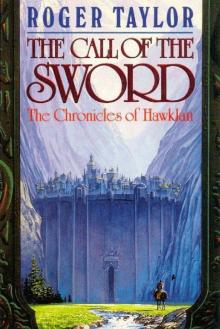 The call of the sword tcoh-1
The call of the sword tcoh-1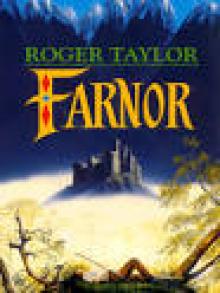 Farnor
Farnor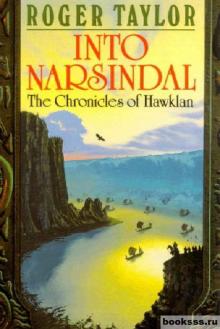 Into Narsindal
Into Narsindal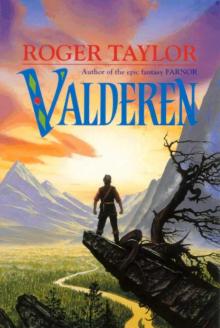 Valderen ft-2
Valderen ft-2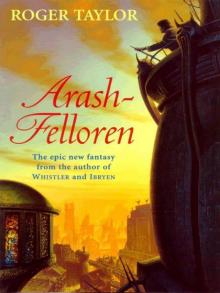 Arash-Felloren
Arash-Felloren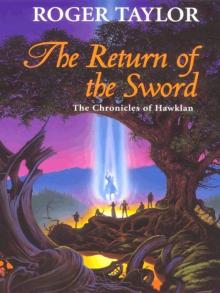 The Return of the Sword tcoh-5
The Return of the Sword tcoh-5![Ibryen [A sequel to the Chronicles of Hawklan] Read online](http://i1.bookreadfree.com/i1/03/26/ibryen_a_sequel_to_the_chronicles_of_hawklan_preview.jpg) Ibryen [A sequel to the Chronicles of Hawklan]
Ibryen [A sequel to the Chronicles of Hawklan]![The Call of the Sword [Book One of The Chronicles of Hawklan] Read online](http://i1.bookreadfree.com/i/03/24/the_call_of_the_sword_book_one_of_the_chronicles_of_hawklan_preview.jpg) The Call of the Sword [Book One of The Chronicles of Hawklan]
The Call of the Sword [Book One of The Chronicles of Hawklan]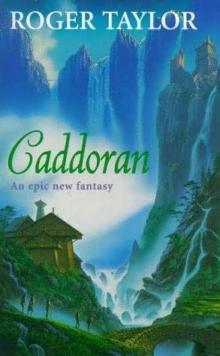 Caddoran
Caddoran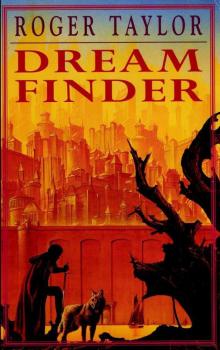 Dream Finder
Dream Finder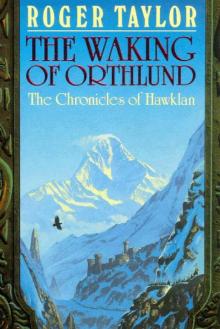 The Waking of Orthlund
The Waking of Orthlund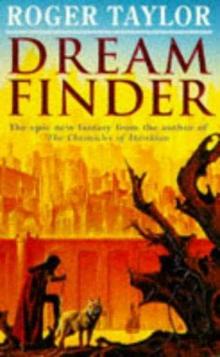 Dream Finder cohs-1
Dream Finder cohs-1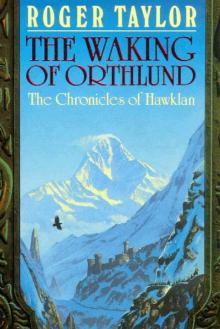 The waking of Orthlund tcoh-3
The waking of Orthlund tcoh-3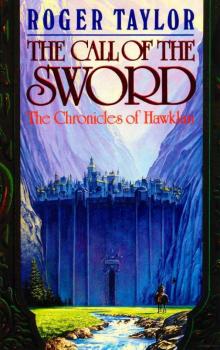 The Call of the Sword
The Call of the Sword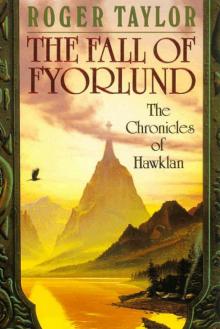 The fall of Fyorlund tcoh-2
The fall of Fyorlund tcoh-2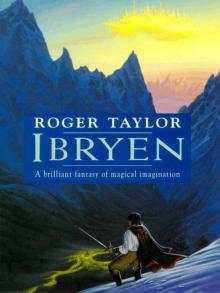 Ibryen
Ibryen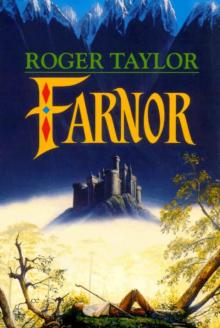 Farnor ft-1
Farnor ft-1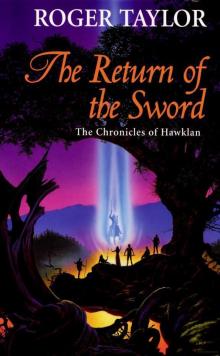 The Return of the Sword
The Return of the Sword![Into Narsindal [Book Four of The Chronicles of Hawklan] Read online](http://i1.bookreadfree.com/i2/04/06/into_narsindal_book_four_of_the_chronicles_of_hawklan_preview.jpg) Into Narsindal [Book Four of The Chronicles of Hawklan]
Into Narsindal [Book Four of The Chronicles of Hawklan]![Valderen [The Second Part of Farnor's Tale] Read online](http://i1.bookreadfree.com/i2/04/05/valderen_the_second_part_of_farnors_tale_preview.jpg) Valderen [The Second Part of Farnor's Tale]
Valderen [The Second Part of Farnor's Tale]![The Fall of Fyorlund [Book Two of The Chronicles of Hawklan] Read online](http://i1.bookreadfree.com/i2/04/08/the_fall_of_fyorlund_book_two_of_the_chronicles_of_hawklan_preview.jpg) The Fall of Fyorlund [Book Two of The Chronicles of Hawklan]
The Fall of Fyorlund [Book Two of The Chronicles of Hawklan]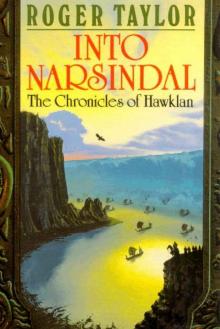 Into Narsindal tcoh-4
Into Narsindal tcoh-4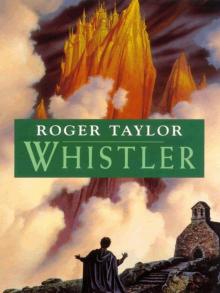 Whistler
Whistler![Whistler [A sequel to The Chronicles of Hawklan] Read online](http://i1.bookreadfree.com/i2/04/12/whistler_a_sequel_to_the_chronicles_of_hawklan_preview.jpg) Whistler [A sequel to The Chronicles of Hawklan]
Whistler [A sequel to The Chronicles of Hawklan]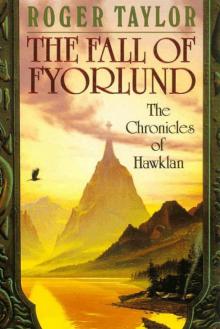 The Fall of Fyorlund
The Fall of Fyorlund![The Waking of Orthlund [Book Three of The Chronicles of Hawklan] Read online](http://i1.bookreadfree.com/i2/04/11/the_waking_of_orthlund_book_three_of_the_chronicles_of_hawklan_preview.jpg) The Waking of Orthlund [Book Three of The Chronicles of Hawklan]
The Waking of Orthlund [Book Three of The Chronicles of Hawklan]